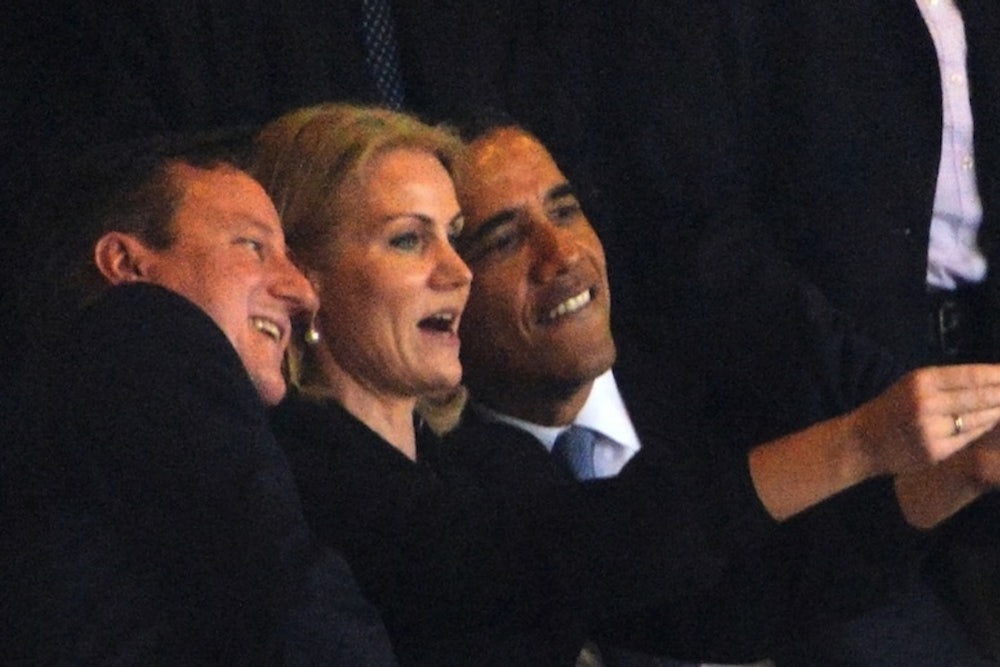Last year, Oxford Dictionaries proclaimed “selfie” the word of the year, prompting lots of thinkpieces read on smartphones and handwringing about narcissism, technology, and those pesky millenials. But while loads of digital ink has been spilled about what selfies mean, there hasn’t been any data to back it up. Now a research team—including a group of computer scientists, media theorists, and an art historian—have launched Selfiecity, a project and website designed to provide some answers about how people pose, smile, and tilt their heads in selfies around the world.
The researchers, led by computer scientist Lev Manovich, spent the last few months investigating the style of thousands of Instagram self-portraits in five different cities—Bangkok, Berlin, Moscow, New York, and Sao Paolo—using automatic face analysis tests and manual examination to determine how culture, nationality, and mood affect selfie styling. So how does one quantify a selfie? The team randomly selected 20,000-30,000 Instagram photos from each city from the week of December 4 to December 12, then workers from Amazon’s Mechanical Turk sifted through to pick out the selfies. The workers approximated age and gender each photo subject, and then the images were run through automated software. Here’s what they found.
We’re Not Only Taking Pictures of Ourselves
The mechanical turks found that only 4 percent of the 120,000 total Instagram photos analyzed were actually selfies; most photos on Instagram were actually of food, pets, and other people.
Women Take More Selfies Than Men
Women took the most selfies in all of the surveyed cities—although men in Bangkok came the closest in reaching selfie-equity with their female counterparts. (Though gender was based on a guess by the Mechanical Turk workers, who wouldn’t be able to tell with any complete certainty whether a selfie-subject identifies as male or female.)
But Don’t Discount The Selfie Potential of Older Men
While the women taking selfies were generally pretty young (the estimated median age is 23.7-years-old), men were more likely to take photos of themselves at a slightly older age. For example, in New York, the average selfie-taking male was 26.7-years-old, compared to 24.3-years-old for women.
People in Moscow Don’t Smile Much
Could the cold weather or the medal count (or Putin?) account for the grave selfies in Moscow? Their average mood analysis ranked lowest of all five cities, with a 0.53 for average smile score. New Yorkers and Berliners scored slightly higher, but people in Bangkok and Sao Paolo were the happiest: they ranked 0.68 and 0.64 on their average smile scores, respectively.
Women’s Selfies (Especially Brazilian Women’s) Are More Expressive Than Men’s
Researchers determined that head tilt correlated with expressiveness, figuring that jarring angles were more dramatic (check for yourself to see if you agree). They found that on average, women tilt their heads by 150 percent more than men. New York women kept it cool by tilting their head just 11 percent whereas in Sao Paulo, women tilted their heads by 16.9 percent.
There’s more to explore on the rest of the site, where you can try to find some answers to questions like "Do angry people tilt their head more strongly?" (It looks like it.) Or “Do people take more selfies with or without glasses?” (Without.) Or “Do people selfie with their mouths closed more often than open?” (Yes.) The research (which was supported by City University of New York, California Institute for Telecommunication and Information, and The Andrew W. Mellon Foundation) is fascinating and strangely hypnotic, though as part of Generation Selfie, my questions are a bit more anxiety-laden than Selfiecity’s research can answer: Do we take more selfies when we feel lonely? And what’s with all the closed-mouth smiles?
